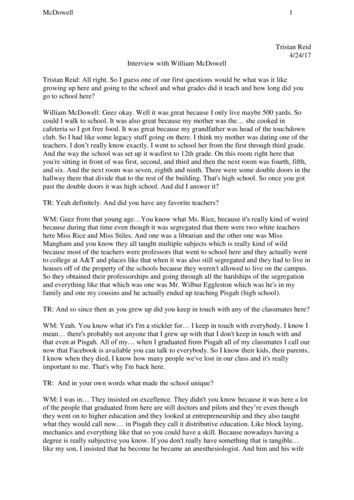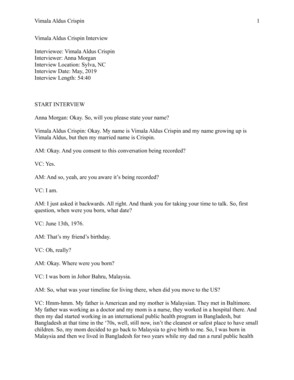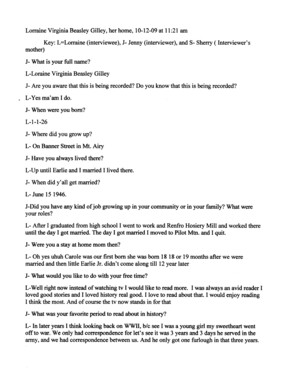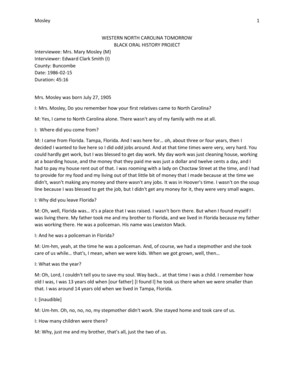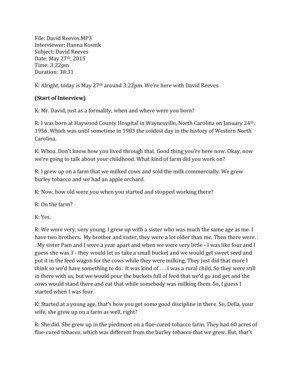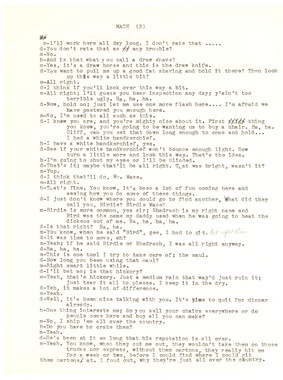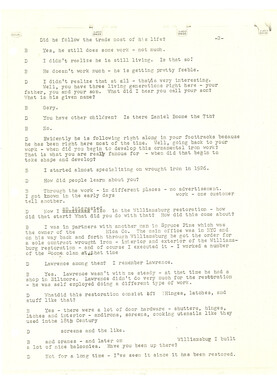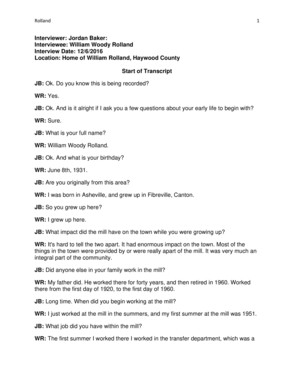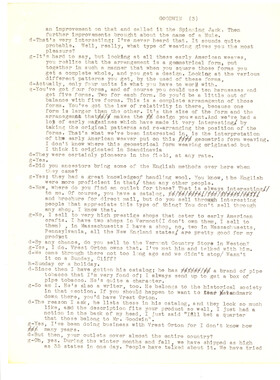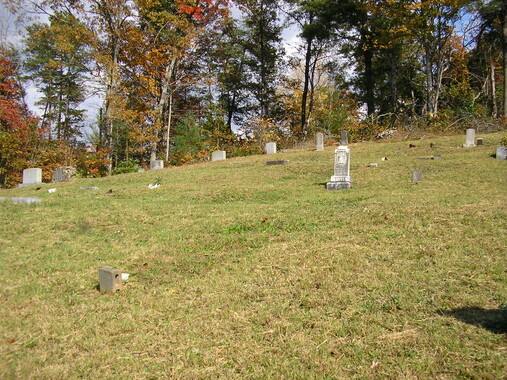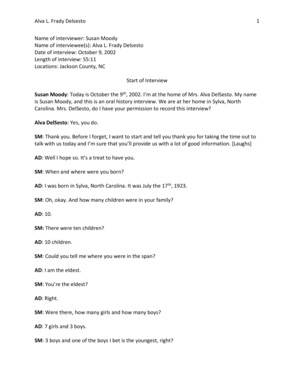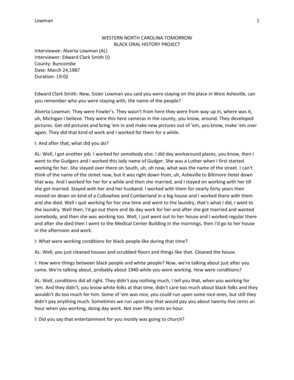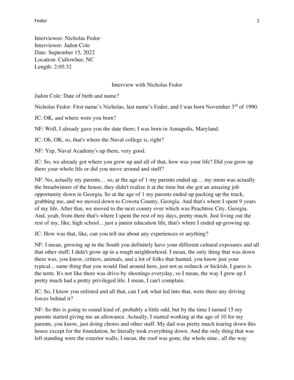Western Carolina University (20)
View all
- Canton Champion Fibre Company (2308)
- Cherokee Traditions (293)
- Civil War in Southern Appalachia (165)
- Craft Revival (1942)
- Great Smoky Mountains - A Park for America (2767)
- Highlights from Western Carolina University (430)
- Horace Kephart (941)
- Journeys Through Jackson (154)
- LGBTQIA+ Archive of Jackson County (24)
- Oral Histories of Western North Carolina (314)
- Picturing Appalachia (6772)
- Stories of Mountain Folk (413)
- Travel Western North Carolina (160)
- Western Carolina University Fine Art Museum Vitreograph Collection (129)
- Western Carolina University Herbarium (92)
- Western Carolina University: Making Memories (708)
- Western Carolina University Publications (2283)
- Western Carolina University Restricted Electronic Theses and Dissertations (146)
- Western North Carolina Regional Maps (71)
- World War II in Southern Appalachia (131)
University of North Carolina Asheville (6)
View all
- 1700s (1)
- 1860s (1)
- 1890s (1)
- 1900s (2)
- 1920s (2)
- 1930s (5)
- 1940s (12)
- 1950s (19)
- 1960s (35)
- 1970s (31)
- 1980s (16)
- 1990s (10)
- 2000s (20)
- 2010s (24)
- 2020s (4)
- 1600s (0)
- 1800s (0)
- 1810s (0)
- 1820s (0)
- 1830s (0)
- 1840s (0)
- 1850s (0)
- 1870s (0)
- 1880s (0)
- 1910s (0)
- Appalachian Region, Southern (15)
- Asheville (N.C.) (11)
- Avery County (N.C.) (1)
- Buncombe County (N.C.) (55)
- Cherokee County (N.C.) (17)
- Clay County (N.C.) (2)
- Graham County (N.C.) (15)
- Great Smoky Mountains National Park (N.C. and Tenn.) (1)
- Haywood County (N.C.) (40)
- Henderson County (N.C.) (5)
- Jackson County (N.C.) (131)
- Knox County (Tenn.) (1)
- Macon County (N.C.) (17)
- Madison County (N.C.) (4)
- McDowell County (N.C.) (1)
- Mitchell County (N.C.) (5)
- Polk County (N.C.) (3)
- Qualla Boundary (6)
- Rutherford County (N.C.) (1)
- Swain County (N.C.) (30)
- Watauga County (N.C.) (2)
- Waynesville (N.C.) (1)
- Yancey County (N.C.) (3)
- Blount County (Tenn.) (0)
- Knoxville (Tenn.) (0)
- Lake Santeetlah (N.C.) (0)
- Transylvania County (N.C.) (0)
- Interviews (314)
- Manuscripts (documents) (3)
- Personal Narratives (7)
- Photographs (4)
- Sound Recordings (308)
- Transcripts (216)
- Aerial Photographs (0)
- Aerial Views (0)
- Albums (books) (0)
- Articles (0)
- Artifacts (object Genre) (0)
- Biography (general Genre) (0)
- Cards (information Artifacts) (0)
- Clippings (information Artifacts) (0)
- Crafts (art Genres) (0)
- Depictions (visual Works) (0)
- Design Drawings (0)
- Drawings (visual Works) (0)
- Envelopes (0)
- Facsimiles (reproductions) (0)
- Fiction (general Genre) (0)
- Financial Records (0)
- Fliers (printed Matter) (0)
- Glass Plate Negatives (0)
- Guidebooks (0)
- Internegatives (0)
- Land Surveys (0)
- Letters (correspondence) (0)
- Maps (documents) (0)
- Memorandums (0)
- Minutes (administrative Records) (0)
- Negatives (photographs) (0)
- Newsletters (0)
- Newspapers (0)
- Occupation Currency (0)
- Paintings (visual Works) (0)
- Pen And Ink Drawings (0)
- Periodicals (0)
- Plans (maps) (0)
- Poetry (0)
- Portraits (0)
- Postcards (0)
- Programs (documents) (0)
- Publications (documents) (0)
- Questionnaires (0)
- Scrapbooks (0)
- Sheet Music (0)
- Slides (photographs) (0)
- Specimens (0)
- Speeches (documents) (0)
- Text Messages (0)
- Tintypes (photographs) (0)
- Video Recordings (physical Artifacts) (0)
- Vitreographs (0)
- WCU Mountain Heritage Center Oral Histories (25)
- WCU Oral History Collection - Mountain People, Mountain Lives (71)
- Western North Carolina Tomorrow Black Oral History Project (69)
- A.L. Ensley Collection (0)
- Appalachian Industrial School Records (0)
- Appalachian National Park Association Records (0)
- Axley-Meroney Collection (0)
- Bayard Wootten Photograph Collection (0)
- Bethel Rural Community Organization Collection (0)
- Blumer Collection (0)
- C.W. Slagle Collection (0)
- Canton Area Historical Museum (0)
- Carlos C. Campbell Collection (0)
- Cataloochee History Project (0)
- Cherokee Studies Collection (0)
- Daisy Dame Photograph Album (0)
- Daniel Boone VI Collection (0)
- Doris Ulmann Photograph Collection (0)
- Elizabeth H. Lasley Collection (0)
- Elizabeth Woolworth Szold Fleharty Collection (0)
- Frank Fry Collection (0)
- George Masa Collection (0)
- Gideon Laney Collection (0)
- Hazel Scarborough Collection (0)
- Hiram C. Wilburn Papers (0)
- Historic Photographs Collection (0)
- Horace Kephart Collection (0)
- Humbard Collection (0)
- Hunter and Weaver Families Collection (0)
- I. D. Blumenthal Collection (0)
- Isadora Williams Collection (0)
- Jesse Bryson Stalcup Collection (0)
- Jim Thompson Collection (0)
- John B. Battle Collection (0)
- John C. Campbell Folk School Records (0)
- John Parris Collection (0)
- Judaculla Rock project (0)
- Kelly Bennett Collection (0)
- Love Family Papers (0)
- Major Wiley Parris Civil War Letters (0)
- Map Collection (0)
- McFee-Misemer Civil War Letters (0)
- Mountain Heritage Center Collection (0)
- Norburn - Robertson - Thomson Families Collection (0)
- Pauline Hood Collection (0)
- Pre-Guild Collection (0)
- Qualla Arts and Crafts Mutual Collection (0)
- R.A. Romanes Collection (0)
- Rosser H. Taylor Collection (0)
- Samuel Robert Owens Collection (0)
- Sara Madison Collection (0)
- Sherrill Studio Photo Collection (0)
- Smoky Mountains Hiking Club Collection (0)
- Stories of Mountain Folk - Radio Programs (0)
- The Reporter, Western Carolina University (0)
- Venoy and Elizabeth Reed Collection (0)
- WCU Gender and Sexuality Oral History Project (0)
- WCU Students Newspapers Collection (0)
- William Williams Stringfield Collection (0)
- Zebulon Weaver Collection (0)
- African Americans (97)
- Artisans (5)
- Cherokee pottery (1)
- Cherokee women (1)
- College student newspapers and periodicals (4)
- Education (3)
- Floods (13)
- Folk music (3)
- Great Smoky Mountains National Park (N.C. and Tenn.) (1)
- Hunting (1)
- Mines and mineral resources (2)
- Rural electrification -- North Carolina, Western (2)
- School integration -- Southern States (2)
- Segregation -- North Carolina, Western (5)
- Slavery (5)
- Sports (2)
- Storytelling (3)
- World War, 1939-1945 (3)
- Appalachian Trail (0)
- Cherokee art (0)
- Cherokee artists -- North Carolina (0)
- Cherokee language (0)
- Church buildings (0)
- Civilian Conservation Corps (U.S.) (0)
- Dams (0)
- Dance (0)
- Forced removal, 1813-1903 (0)
- Forest conservation (0)
- Forests and forestry (0)
- Gender nonconformity (0)
- Landscape photography (0)
- Logging (0)
- Maps (0)
- North Carolina -- Maps (0)
- Paper industry (0)
- Postcards (0)
- Pottery (0)
- Railroad trains (0)
- Waterfalls -- Great Smoky Mountains (N.C. and Tenn.) (0)
- Weaving -- Appalachian Region, Southern (0)
- Wood-carving -- Appalachian Region, Southern (0)
- Sound (308)
- StillImage (4)
- Text (219)
- MovingImage (0)
Interview with William McDowell
Item
Item’s are ‘child’ level descriptions to ‘parent’ objects, (e.g. one page of a whole book).
-
-
McDowell 1 Tristan Reid 4/24/17 Interview with William McDowell Tristan Reid: All right. So I guess one of our first questions would be what was it like growing up here and going to the school and what grades did it teach and how long did you go to school here? William McDowell: Geez okay. Well it was great because I only live maybe 500 yards. So could I walk to school. It was also great because my mother was the… she cooked in cafeteria so I got free food. It was great because my grandfather was head of the touchdown club. So I had like some legacy stuff going on there. I think my mother was dating one of the teachers. I don’t really know exactly. I went to school her from the first through third grade. And the way the school was set up it wasfirst to 12th grade. On this room right here that you're sitting in front of was first, second, and third and then the next room was fourth, fifth, and six. And the next room was seven, eighth and ninth. There were some double doors in the hallway there that divide that to the rest of the building. That's high school. So once you got past the double doors it was high school. And did I answer it? TR: Yeah definitely. And did you have any favorite teachers? WM: Geez from that young age…You know what Ms. Rice, because it's really kind of weird because during that time even though it was segregated that there were two white teachers here Miss Rice and Miss Stiles. And one was a librarian and the other one was Miss Mangham and you know they all taught multiple subjects which is really kind of wild because most of the teachers were professors that went to school here and they actually went to college at A&T and places like that when it was also still segregated and they had to live in houses off of the property of the schools because they weren't allowed to live on the campus. So they obtained their professorships and going through all the hardships of the segregation and everything like that which was one was Mr. Wilbur Eggleston which was he's in my family and one my cousins and he actually ended up teaching Pisgah (high school). TR: And so since then as you grew up did you keep in touch with any of the classmates here? WM: Yeah. You know what it's I'm a stickler for… I keep in touch with everybody. I know I mean… there's probably not anyone that I grew up with that I don't keep in touch with and that even at Pisgah. All of my… when I graduated from Pisgah all of my classmates I call our now that Facebook is available you can talk to everybody. So I know their kids, their parents, I know when they died, I know how many people we've lost in our class and it's really important to me. That's why I'm back here. TR: And in your own words what made the school unique? WM: I was in… They insisted on excellence. They didn't you know because it was here a lot of the people that graduated from here are still doctors and pilots and they’re even though they went on to higher education and they looked at entrepreneurship and they also taught what they would call now… in Pisgah they call it distributive education. Like block laying, mechanics and everything like that so you could have a skill. Because nowadays having a degree is really subjective you know. If you don't really have something that is tangible… like my son, I insisted that he become he became an anesthesiologist. And him and his wife McDowell 2 both are and he's over four hospitals now. But I raised him like a marine. Yeah, he’s… I don’t if you ever saw that movie called, The Lawyer and His Son with Robert Duvall it’s a movie that out and his son said, you never came to my graduation…you never helped me with this… you never help with that. And I graduated top of my class and his father turns to him and says “you're welcome” you know that? Yeah, and so and that's the way me and my son are. You know it's like I was really hard on him. But now a days you know unfortunately and I don't mean this in a negative way, but I think the kids the things are laid out too easy. And unfortunately your lives are going to be so much more difficult because you're competing not with other people of education but with computers. TR: Yeah. WM: You know so your brain it has to be 10 years ahead of what you're thinking about. So where we could say hey when I get out I’m going to go an auto mechanic. When I get out I’m going to do this, you have to say when I get out where is technology going to be in 20 years. You know what I mean? So it's a lot more difficult. TR: I got you. So what made you really want to get involved with this project? WM: When I… I tell you it's really, really easy. That green old shack right there is my grandfather's sister’s house. That white house was my aunt Della. The next one is the guy that married my aunt. The blue one right there is the lady that saved my life. She was Reverend Conley's wife. And you get around to the corner where the house is right on the street. Seventeen of us in that house and no bathroom. That's where I grew up. And so what I did was my grandfather used to walk me over here all the time and he would point out everybody in the graveyard. To this day my mother's there, my grandfather there, my aunties there and my uncle. All of the ones that were before me are laying right up on the hill. And he would just tell me about all these people and what they had done for him. And this had closed down in 1965 is when they had what they call…they call it not integration but they called it consolidation. That is the word they used. And but it was really integration. And we were the first bus people. They used to pick us all up on the hill. [interruption] When he would talk to me about those people and he would always tell me that you should always do something to make life better for everybody. And so I had always knew that I would come back and do something. I didn't know… and I heard that they had sold this. And I went to… I actually hitchhiked to California my first time. Back in ’77, ‘78 and got out there and it didn't work so I came back and I bought a car and I drove back. Then I went into jewelry and became a gemologist and then I started into real estate… started buying real estate and we started developing projects out there actually bought apartment complexes. And I was doing things and it was looking really good because I was doing inner city stuff and helping kids. And started a security company for the inner-city. But it wasn't my home. And I didn’t like that. I don't like you… and you know I've obtained some money. And I heard… I met the guy that owned it before and he had cancer. I asked him if he was ever going to sell it and he said no, he didn't think he would ever sell it. And I said if you ever do just let me know. And his wife called, Mrs. Wanda Conley, and she had found out he had died and I flew back from Vegas… And they were auctioning it, and I bought it. And I thought you know what better place to put a community center. It's not just for this community because I'm not even doing it just for this building. It's a twenty thousand square McDowell 3 foot building on seven acres. But the building is the least of my thing. This is going to cost me… you know three to four million dollars to do. And then but I want to do…see how the houses are there. I want to clean the community, because when I grew up here it was clean. It didn’t have to be an expensive house but everybody took care of everything. So my thing is to restore pride in where you live because as a black child we used to play down at the YMCA. And my thing was we never could bring them back here because there was nothing here. So what would be a better thing than to have another race of people come to your community of something positive. And then you can go there and do something and so then you have positive on both ends. It's like in New York, you go to Bed-Stuy (Bedford-Stuyvesant) and all these other places it's negative. So they go outside the community to play. I want this to be a place where everybody wants to come to and do something you know and it be positive. You know that's what I want. Her mother is the one who saved my life. So it's been a it's really kind of…you only are what you do. Even God says that. Doesn't judge you on what you talk about… all those things. It's what you do, your work is what he talks. So I'm trying to leave a footprint you know. And like I tell people… there's somebody who will debate me on whether the property line is or do you own this. And I say I don't really care. You can have it as long as you take care of it. That's all I care about. If you want it, I'll give it to you… If you want to put something there, I'll let you have it. I don't care as long as you take care of it. So that's my whole thing is to get people to say it's all of ours. I didn't buy this because it's going to make me money. It's going to cost me money. So it's not like a financial windfall. So I'm just try to improve the life that… I had a great life here. I had a great life here. I really, really did. I mean it… I wouldn't want it to grow up anywhere else in the world. And I've been everywhere. There is nothing like western North Carolina, especially Canton and Asheville. People just don't believe it but I started a business here just to prove people that it can be successful. And now I've got two… now I've got this and the bus company and I'm going to take those buses right there that you saw... those are my old buses that I took out of my tour company and I'm going to paint them. And I’m going to (put) chrome wheels on them, you know a nice interior, take the windows out of them and they're going to be like buses I can just drive people all over and they'll just donate money... if you want to drive to Asheville, hey maybe I’ll have a bus run over there three or four times a day. And you can just get on the bus because there's nothing that takes you from Canton to Asheville. You want to go to a concert over there and you don't want to drive or worry about parking. Take the shuttle bus that goes to Asheville, you know what I mean. TR: I got you and your other company you have … you said it's in busing as well? WM: Well no. God-Jesus no…we own a music company, where we do we tour and I own… I have a real estate company. I have jewelry, I still supply diamonds and things like that to major jewelry department stores out of 6th street in L.A. My family calls me the Jamaican…Because you know the jokes, all Jamaicans have seven jobs. But I've always been so poor. I remember the first time I got…you know those fruit of the loom underwear. How they used to come in three packs. I got two packs of those, which meant I had a pair of underwear for almost a whole week. And it was like the biggest thing man… it was in my… I use to leave my dresser open just to look at them. And so now I have like you know, you know… But those little things like that so I want the kids here to just… unfortunately, nobody takes McDowell 4 pride in stuff anymore. You know and you guys are like going to come up in a real crappy world. You know I mean they’re getting ready to drop a nuclear bomb. It's just it's… it's just a real crappy world. And so it's like if she's your friend and you've got friends, just help one another because it's a small circle of things that you do that makes a difference. The more you do positive and it goes out from there and out from there and out from there. When I came here three years ago, they were all sitting on the porch drinking and hating one another and just talking. Now, it’s the kids have something to do you know and it's not even done. I just clean the field and you know. TR: So before you cleaned the field, was this… WM: It was like that…you couldn’t even see it, the trees had grown all the way up to that thing and all the way here. So none of this… I have pictures of it I can show ‘em to you. And you couldn't even see this place because there were blocks and trash and everything in front. This was the whole building was graffiti. You know it was just really, really nasty. It was it was sad because I knew that it was a place that should be respected. You know I can't wait to see the pictures. It's going to be beautiful. April (Group Member): In one of your interviews we noticed that you called this ground sacred… WM: Yeah. AC: And we just were wondering why? WM: You know it's… you're talking about the first generation of people after slavery that moved here and made a life. You know my grandfather's father and everybody… you know you're talking about because everybody thinks you know slavery was a long time ago, when it wasn’t that long ago. And even after slavery you know you didn't get equal rights until the 60’s. You know so and then after that is it still it was difficult. And I always tell people all the time when they say that you know your people say you’re playing the race card, you’re playing the race card. And I always say if you have the whole deck and you give me one. That's all I can do. And a race card is really not a thing that you should ever run from. It's something that I don't like people to use it just as a crutch but there is a consciousness that people should have and that's on both sides. Because for me … if I could just tell you this real quick story. Do you know why Malcolm X name was Malcolm X? TR: I do not WM: The X stood for the unknown like in math. You see all black people don't have a last name. We have slave names. What's your last name? TR: Reid WM: Okay, well it’s not an African name. McDowell is an Irish name, you know. So there's no so we're the only race of people in the United States that took the slave owners last name. So Malcolm X is given name or slave name was Little. So when you think about it when you're cut off from your name and your food and your language but not the Italians, not the Chinese, not the Native Americans as bad as they were treated, all of these things… so what happens is you end up trying to find out who you are. That's why this is sacred because these McDowell 5 people came here and said, “This is our home, this is what we do.” They built this thing. That well right there, that little cement thing right there, where that ground is plowed…that was the first school. It burned down over there and they use to get their water from that well. Okay and then when it burned they use the church to go to school and then they built this. So that's how… So for me it was people that just gave their lives up. And the football team here never lost the game. Never, they played there and over at the stadium too. Yeah, when they played they would play different schools and but they never lost a game ever. TR: Wow. So just to go more in-depth about this specific project, do you have any… Do you already have written down specific plans for what you’re going to do inside? Are you going to remodel it? WM: Actually we do, we have we hired a company called McMillen out of Asheville and they've drawn up a perspective of it and we'll have it a… because of my wife it'll have a [music] studio. It will have a gymnasium this multipurpose for shows and rent out of events, have drug awareness and cultural awareness. It’s going to have kind of a sub cafe where you can get food and things like that. And for you guys of your age I told him I wanted a chill spot. I wanted people to be able to escape places and come and just do your homework and you know get on the computers that are really, really screened, you know. And with streaming so you can download free music… you know where you have a place to come to you. It's got… it's got a senior citizens place for people to come to and it's also the one thing I'm really, really and I've never talked about this on… is for women, abused women and children. My mother went through that. So I want the women to have a place to come to and the kids because we started a project in St. Louis called The River Runs, not the River Runs I'm sorry The River Runs is in L.A., but the one in St. Louis (I can't remember the name), but what happens is when a child is abused first they go to a doctor and then they move them from the doctor to the police station and from the police station to somewhere else. So the kid is traumatized like all these times. So what we did was we built the building and the kid goes one place and everybody comes to them. And then there's a window to a window where the parents can watch what's going on. And so that's been real successful. A friend of mine named Valerie Sobol built a place in L.A. called The River Runs and what she does is the river are these vans and they go out and they find these homeless kids and drug what you called kids… and they bring them to this one place and she makes everything run into that whether its drug counseling and everything so I took an example from that. You know that's what I want to have happen here. TR: I got you… So it looks like it's really going to affect all parts of the community… WM: And beyond I hope. I hope… you know I have a friend also that owns a company it's called House of Metamorphosis and it's in San Diego. Her name is Beverly Monroe… and what happens is I've sent three people from here. That… friends of mine who had kids that were on drugs and I flew them there. You know how much it cost them to stay there? Nothing, she keeps them there as long as necessary. They feed they eat, sleep, and drink everything right there on the property. And those are the things, those are my heroes. I don't have heroes, I mean I like people. I like Magic and all the other people, but the people like Bishop Tutu and Nelson Mandela. I mean I've been in Mandela's house, you know I've been to South Africa where on that street in South Africa the only two places in the world where two people who won the Nobel Peace Prize live on the same street you know so…those are the things that move me. My grandfather is my biggest hero. I found his check probably eight McDowell 6 years ago for two weeks and it was $150. And I found out that he had signed notes for people and so they were garnishing his wages and he never ever talked about it. So I just want to… that’s what I want to do. TR: Is there anything else that that really sticks out to you that you would like us to put in this project? WM: You know sometimes people want to see tangible things like, you know in three years you know they don't really know how much work has gone into it but a 501(C)(3) in the state of North Carolina requires a lot of…. Because nobody can get paid and so to find people who want to work for you for no money. You know so, it's been hard to get people on board because they want to see all five million dollars come in at once. But we're going to be doing concerts, right now were tentatively scheduled for August 12th in the Asheville Civic Center…with my wife tentatively scheduled Boys to Men. I may get a couple of them…you know those rapper dudes and have them in there. Because I know a lot of those guys but something and then they're going to be a tennis tournament. Hopefully, it will be off the Asheville record club that we're looking at doing and we're going to hopefully do a downtown concert Ashe… Canton. TR: So please let us know about that and we'll try to put up posters and things at Western. AC: If there’s anything we can do at Western Carolina, we are active in history club. We have all kinds of clubs that might be interested in helping you. WM: Oh that would be wonderful, that would be wonderful. Well you know you guys you have my number I'll give you my personal number… AC: Because Western Carolina they're always looking for the different clubs they're required to do so much volunteer work. WM: Yeah. You know we haul the football team sometimes. AC: Our team? WM: Yes… Yeah, do you ever see them buses WNC travels? AC: Yes, I just rode one to Florida. TR: Was it bad? Did you have a bad time with my brother? AC: No, he ran over a stop sign at Disney World. WM: Oh, Jesus… (laughter) AC: We actually thought it was hilarious. WM: Yea, that's my company. I own that company. I like to know when there’s bad stuff that happens though. AC: It was really fun. McDowell 7 WM: You had a good time? AC: He was hilarious… WM: Was it Randy? AC: He was a big old guy. WM: I never know. AC: But no…he was actually very very hilarious. We found him very comical. WM: Oh well good… yeah those are my buses. And so if you ever need something like that let me know. AC: Well if we can every do anything to get student involvement to help you… we are all about on that. WM: That would be wonderful, that would be wonderful. And you know as long as I see this, [sounds of children playing in background] then I got hope. But every time I turn on the news… I really… I’ve known Donald Trump for a while. I know President Obama as well and the one thing I have to really say about politics is everybody thinks they know it until they have to do it. And what I've been positive about is that he's actually started to realize, this is a whole other process and I'm just hoping that it doesn't… before… because he could do… he has some really, really good ideas. He just needs to… like this… everybody had the idea but nobody wanted to act on it. AC: Well we are super grateful that you … we really wanted to get Reynolds School on our… TR: Yeah so we went around and looked at the building… WM: I can let you look on the inside a little bit if you want. It’s really kind of dangerous… I don't know if you could see anything… Video moves to walking inside the Reynolds school. A lot of the audio is drowned out by the music and the space between us as we walk through the historic structure. End of Interview
Object
Object’s are ‘parent’ level descriptions to ‘children’ items, (e.g. a book with pages).
-
William McDowell grew up in Canton, NC and attended Reynolds School. The local segregated institution insisted on excellence from its student body and taught first through twelfth grade. According to the businessman and community activist, the school was approximately “500 yards” from his childhood home. The institution made a profound impact on his life then and continues to today. As the main benefactor, McDowell is in the process of renovating the school that closed in 1966-67, with plans to transform it into a community center.
-
